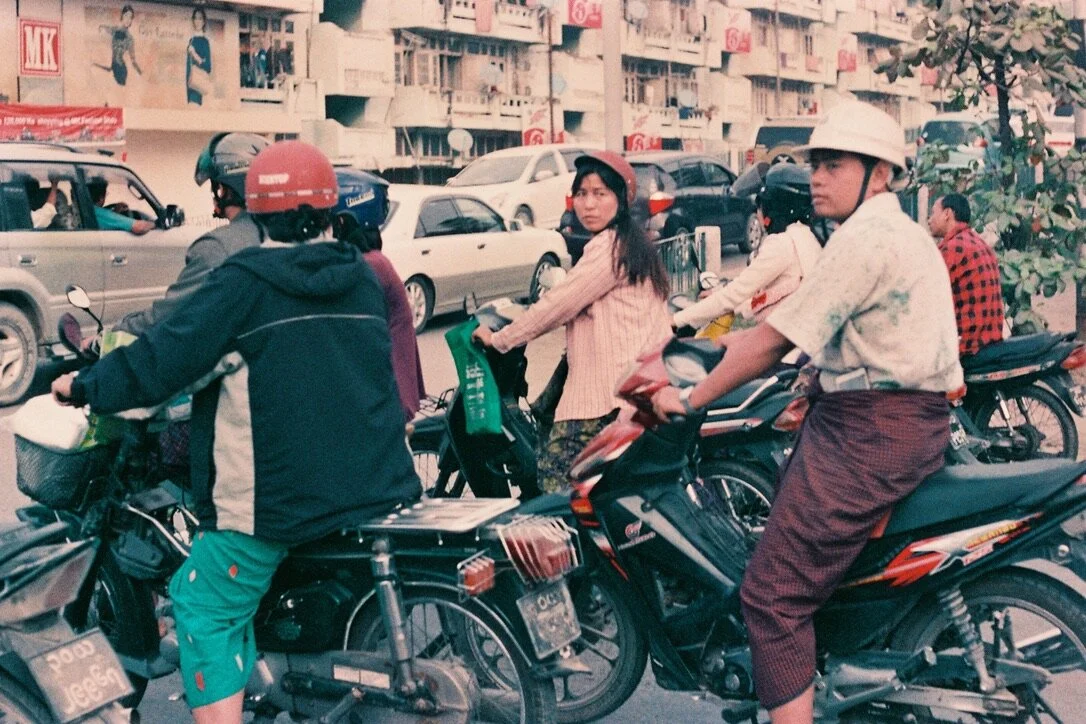
Michel is a strategic foresight professional with two decades of experience in the humanitarian and development sector. With a rich background as the former Director of Strategy at Save the Children International and Action Against Hunger, he now spearheads the Inter-Agency Research and Analysis Network (IARAN).
Michel's passion for education shines through in his decade-long commitment to designing and delivering cutting-edge training courses for humanitarian and development leaders. He shares his expertise at renowned institutions such as Science Po, Paris-Saclay, Deakin, and Federico II Universities, as well as at the Futuribles and IRIS Think Tanks. In addition, Michel serves as the Chair of the Ukraine Emergency Committee at the Fondation de France.
When he's not crafting bespoke foresight projects, Michel is at the helm of strategic and transformational initiatives, driving impactful change in the sector.
The international aid system faces unprecedented transformation. INGOs must adapt to a fragmented, polycentric aid landscape marked by shrinking funding, localization pressures, and emerging local actors. Human Resources (HR) functions are central to this shift. Outsourcing HR is no longer a stopgap but a strategic response—enhancing flexibility, cost control, and quality. Decentralizing HR empowers field operations while preserving organizational coherence. Internal HR evolves into a strategic steward, focusing on talent management and organizational values. As humanitarian aid becomes more territorial and fragmented, robust, adaptive HR models will be vital to sustain impact and relevance in an uncertain future.
In light of recent geopolitical shifts, the humanitarian sector is experiencing significant changes. The « To Each Their Playing Field » scenario from The Future of Aid: INGOs in 2030 report anticipates a fragmented humanitarian landscape, with decentralized responses and diverse actors beyond traditional INGOs. To remain relevant, INGOs must accelerate localization efforts, empowering regional partners and redefining their value propositions. This transformation is crucial to effectively navigate the complexities of a multipolar world and continue delivering impactful humanitarian assistance.
"Unleashing Local Potential: Advancing Aid Localization in Ukraine" delves into the critical importance of bringing power and resources closer to the communities in need. The article highlights the crisis in Ukraine as a turning point for advancing the localization agenda in humanitarian aid. By recognizing the capabilities of local actors and addressing the challenges they face, the article advocates for a transformative approach that empowers Ukrainian civil society and fosters effective localization of aid.
Innovation in the humanitarian sector is a challenging journey, often hindered by cultural resistance. However, with a transformation strategy, leadership support, and a culture open to change, these obstacles can be overcome. Strategic foresight, which anticipates future trends and proactively develops solutions, can greatly enhance this process. External pressures, like the COVID-19 pandemic, can also catalyze cultural transformation, prompting organizations to rethink traditional ways and embrace innovation.
The humanitarian ecosystem is failing to adapt to global transformations and new types of crises. This failure is rooted in the opportunistic nature of ODA flow governance and the entrenched value chain of formal humanitarian actors. To break free from this short-termism trap, the humanitarian ecosystem must shift its approach and values, prioritizing the needs and voices of those affected by humanitarian crises. Only then can it fulfill its potential to provide effective and lasting assistance.
The provision of impartial aid to affected populations has become everyone’s business in this post-globalized world. Aid actors cannot continue reproducing reactionary models that at the end benefit INGOs and not crisis-affected people.
Acabar con los encierros es, como lo define Paul Watzlawick, “una ultra-solución”: un intento de arreglar un problema deshaciéndose de todo lo que tenga que ver con el mismo. Al caer en esta trampa, los gobiernos están utilizando la ultra-solución, arriesgándose a destruir tanto la economía, como la vida de las personas al final del túnel.
Lockdowns are what Paul Watzlawick defines as “an ultra-solution”: an attempt to fix a problem by getting rid of it and everything that goes with it. Falling into this trap, governments are at risk of destroying both the economy and peoples lives.
L’homophobie est entendue comme les discriminations de tous ordres à l’encontre des personnes LGBT (lesbiennes, gays, bisexuelles et transgenres). Si «l’homophobie politique» est déjà connue en tant qu’outil de duplicité en politique intérieure, Michel Maietta explore davantage son pouvoir de manipulation, jusqu’à sa dimension géopolitique. L’auteur nous rappelle à quel point la protection des droits des personnes LGBT revêt une importance stratégique dans la défense plus large des droits de l’homme.
Is it possible to use foresight analysis to tackle the geopolitics of homophobia? Michel Maietta discusses the progress made so far and how the futures technique could be beneficial to decriminalizing homosexuality everywhere










